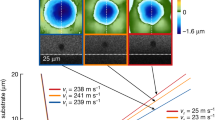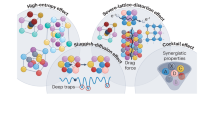Abstract
THE thermal theory of ignition of gases explains certain phenomena in the ignition of explosive mixtures by electric sparks involving capacitive and break or make discharges. However, a number of important questions for theory as well as practice remain to be answered. In this connexion the author has made some introductory investigations on the ignition of explosive gas mixtures having in mind the simplified assumption that the ignition process is essentially thermal in character, so that some critical temperature is involved in the initiation of the ignition. This temperature may be attained by a single process, such as the heating of a wire, or by more than one process, for example, the heating of a wire plus an electric discharge. In the case of an 8.3 per cent methane–air mixture the initiation of ignition involves a certain critical volume of gas attaining a minimum temperature.
This is a preview of subscription content, access via your institution
Access options
Subscribe to this journal
Receive 51 print issues and online access
$199.00 per year
only $3.90 per issue
Buy this article
- Purchase on Springer Link
- Instant access to full article PDF
Prices may be subject to local taxes which are calculated during checkout
Similar content being viewed by others
Author information
Authors and Affiliations
Rights and permissions
About this article
Cite this article
ROGULSKI, W. Ignition of Gas Mixtures by Electric Discharges between a Heated and a Cold Electrode : Application in Breakflash Apparatus for Intrinsic Safety Testing. Nature 194, 858–859 (1962). https://doi.org/10.1038/194858a0
Issue Date:
DOI: https://doi.org/10.1038/194858a0
Comments
By submitting a comment you agree to abide by our Terms and Community Guidelines. If you find something abusive or that does not comply with our terms or guidelines please flag it as inappropriate.



